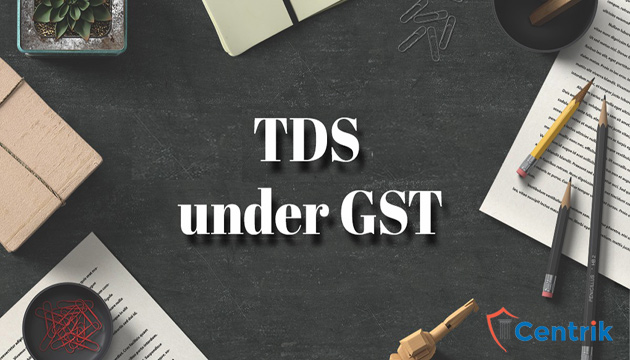
Alike with Income Tax Act, now GST has also introduced Tax Deducted at Source (TDS) to facilitate the payment of tax.
Who are liable to deduct TDS?
As per Notification No. 33/2017 – Central Tax, 15th September 2017, following entities need to deduct TDS:
- An authority or a board or any other body which has been set up by Parliament or a State Legislature or by a government, with 51% equity ( control) owned by government
- A society established by the Central or any State Government or a Local Authority and the society is registered under the Societies Registration Act, 1860
- Public sector undertakings
The provisions of Section 51 i.e. deducting TDS under GST is mandatory and applicable from 18th September 2017
It has also been made obligatory for the TDS Deductors to register under Goods and Services Tax (GST).
Rate for deducting TDS under GST:
| 1% | CGST/SGST |
| 2% | IGST |
Consequences in case TDS Deductors fail to comply:
| S. No. | Event | Consequence |
| 1. | TDS not deducted | Interest to be paid along with the TDS amount; else the amount shall be determined and recovered as per the law |
| 2. | TDS certificate not issued or delayed beyond the prescribed period of five days | Late fee of Rs. 100/- per day subject to a maximum of Rs. 5000/ |
| 3. | TDS deducted but not paid to the Government or paid later than 10th of the succeeding month | Interest to be paid along with the TDS amount; else the amount shall be determined and recovered as per the law |
| 4. | Late filing of TDS returns | Late fee of Rs. 100/- for every day during which such failure continues, subject to a maximum amount of five thousand rupees |
Documents required:
Certificate has to be provided by the Deductor to the Deductee within 5 days of crediting the amount so that it can be deducted to the Government in the prescribed manner.
Note – Please note that the above article is for education purpose only. This is based on our interpretation of laws which may differ person to person. Readers are expected to verify the facts and laws.




 join For Updates
join For Updates